20 Black Women Who Made History
You’ve probably heard of Harriet Tubman and Rosa Parks, but there are many lesser known Black women who made history. Each had to overcome racism and sexism to prove they were just as smart and capable as everyone else. Their stories can enrich your social studies teaching any time of the year, not just during Black History Month or Women’s History Month.
Sharing their stories can also inspire children to overcome any obstacles they face, whether they be mental illnesses, physical handicaps, or language barriers. If these women could rise above their challenges, then so can your students!
Phillis Wheatley
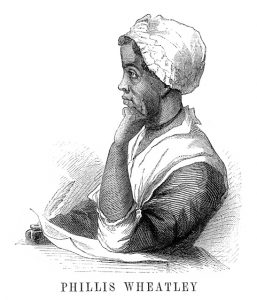
Phillis Wheatley – Scanned 1855 Engraving
After being kidnapped from West Africa at age eight, Phillis Wheatley came to Boston in 1761 and was sold into slavery. Phillis’ enslavers, however, were unique in that they taught her how to read and write and even encouraged her literary pursuits, according to a May 2021 article in biography.com. Phillis quickly learned English, Latin, and Greek, and became the first African American (and woman) in the American colonies to publish a book of poetry.
Mary Eliza Mahoney
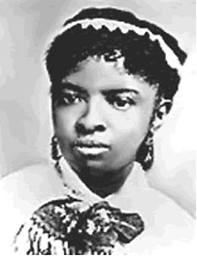
Mary Eliza Mahoney, Wiki Commons
As a teenager, Mary Eliza Mahoney knew she wanted to become a nurse. In 1879, she became the first Black American to earn a professional nursing license. According to a 2017 article written by Dr. Kelly A. Spring for womenshistory.org, Mahoney worked for decades as a private nurse and then became the director of The Howard Orphanage Asylum for Black children in Long Island, New York.
Ida B. Wells-Barnett
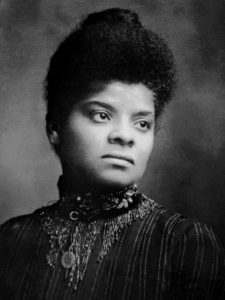
Ida B Wells, Wiki Commons
Investigative journalist Ida B. Wells-Barnett used her writing skills to expose the oppression of African Americans in the South during the late 19th and early 20th centuries. A 2017 article written by Arlisha R. Norwood for womenshistory.org outlines how Wells-Barnett exposed the injustice of several lynchings and had to flee to Chicago to escape violent threats. In Chicago, she continued to advocate for equal rights for women and Black Americans and founded the National Association of Colored Women’s Club.
Mary Ellen Pleasant
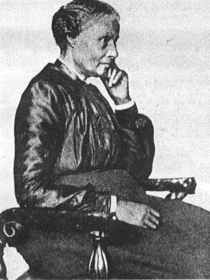
Mary Ellen Pleasant, Wiki Commons
In 1852, Mary Ellen Pleasant set sail for San Francisco to escape punishment for her work as an abolitionist. Her biography page on nps.org describes how she worked as a housekeeper for the city’s most prominent merchants and gleaned valuable business advice from the conversations she overheard. She began investing in real estate and mining stock and used her wealth to combat racism in her community.
Bessie Coleman
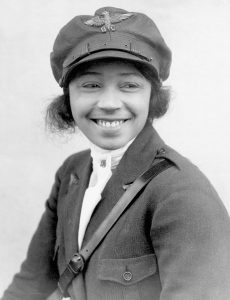
Bessie Coleman, Wiki Commons
After flying schools in the United States denied her entry, Bessie Coleman learned French and moved to France to attend Caudron Brother’s School of Aviation. According to a 2021 article in biography.com, she was the first Black woman to receive a pilot’s license, which she earned in just seven months. In 1922, she became the first Black woman in the U.S. to make a public flight. Her achievements as a famous aerial stunt performer paved the way for female pilots.
Fannie Barrier Williams
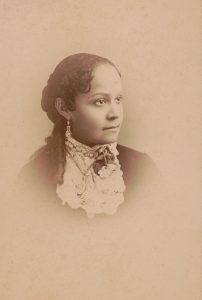
Fannie Barrier Williams, Wiki Commons
Social reformer Fannie Barrier Williams co-founded the National League of Colored Women and helped organize Provident Hospital and its training school for nurses in 1893. After graduating from college, she became an activist for African American and women’s rights. Her lectures at the World’s Congress of Representative Women and the World’s Parliament of Religions earned her national acclaim. According to a biography about Williams on britannica.com, she also wrote regularly for the Chicago Record-Herald and the New York Age to help advance educational and social opportunities for Black women.
Mary McLeod Bethune
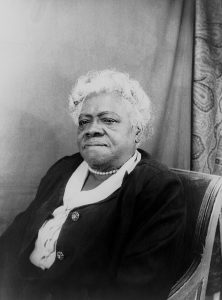
Mary McLeod Bethune, Wiki Commons
Born to two formerly enslaved people, Mary McLeod Bethune sought to break the racial divide through education. According to a 2023 biography about Bethune on britannica.com, she graduated from Scotia Seminary for Girls in 1893 and founded what later became Bethune-Cookman College in Florida. She also worked to advance opportunities for Black women by serving as president of the Florida chapter of the National Association of Colored Women for many years.
Edmonia Lewis
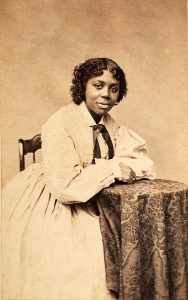
Edmonia Lewis, Wiki Commons
Born to a Chippewa mother and Haitian father in the 1800s, Edmonia Lewis grew up in her mother’s tribe before moving to Boston to pursue an art career. She is cited by americanart.si.edu as the first sculptor of African American and Native American descent to receive international recognition. Through art, she raised awareness of racial discrimination and honored her indigenous heritage.
Rose Marie McCoy
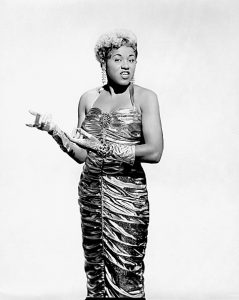
Getty Images/James Kriegsmann
Born Marie Hinton in Oneida, Arkansas, in 1922, Rose Marie McCoy had a successful career as a singer and songwriter that lasted over six decades. She wrote hit songs for artists such as Nat King Cole, Elvis Presley, and Sarah Vaughan. Sadly, McCoy received little recognition for her achievements until after her death in 2015. According to an article about McCoy in encyclopediaofarkansas.net, she was inducted into the Arkansas Jazz Hall of Fame in 2018.
Mary Church Terrell
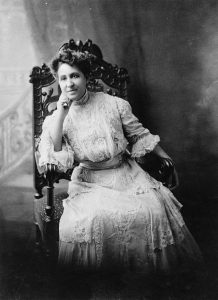
Mary Church Terrell, Wiki Commons
When her friend, Thomas Moss, was brutally murdered because of his race, educator Mary Church Terrell became an activist for African American rights. According to a 2017 article written by Debra Michals for womenshistory.org, Terrell served as president of the National Association of Colored Women for five years and in 1909, helped found the National Association for the Advancement of Colored People (NAACP).
Althea Gibson
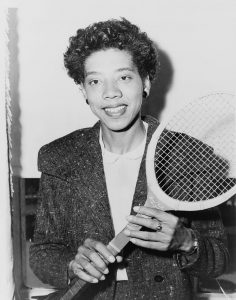
Althea Gibson, Wiki Commons
Growing up in the 1930s and ‘40s in Harlem, New York, Althea Gibson wasn’t allowed to compete in tennis tournaments because of her skin color, but that didn’t stop this prodigy from competing. She kept playing and winning. According to an article about her on biography.com, she ultimately became the first Black tennis player to compete in the U.S. National Championships in 1950 and at Wimbledon (the oldest tennis tournament in the world) in 1951.
Ella Fitzgerald
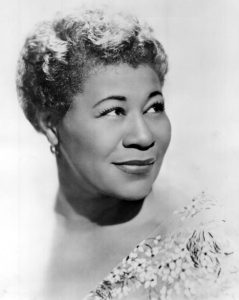
Ella Fitzgerald, Wiki Commons
After debuting at the Apollo Theater in an amateur contest, Ella Fitzgerald became one of the best jazz singers of all time and the first Black woman to win a Grammy Award in 1958. According to an article about Fitzgerald on biography.com, she won a total of 13 Grammys, sold over 40 million albums, and received the NAACP Image Award for Lifetime Achievement. Known as the “First Lady of Song,” she recorded hits such as Dream a Little Dream of Me, Cheek to Cheek, and Into Each Life Some Rain Must Fall.
Marian Anderson
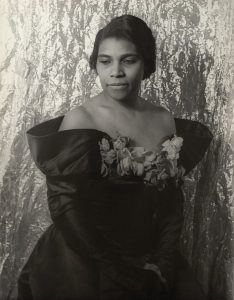
Marian Anderson, Wiki Commons
From a young age, Marian Anderson showed vocal talent, but her parents couldn’t afford for her to have singing lessons. Thanks to generous donations from local church members, Anderson got to attend a music school for one year. According to biography.com, she went on to have an international career as an opera singer, and in 1955, became the first Black American to perform with the New York Metropolitan Opera.
Barbara Jordan
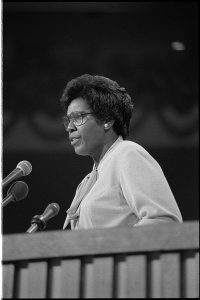
Barbara Jordan, Wiki Commons
Politician Barbara Jordan was the first Black woman elected to the Texas State Senate and the first Black woman from a Southern state to serve in the U.S. House of Representatives. As a member of the House Judiciary Committee, she gave the 15-minute opening address at Richard Nixon’s 1974 impeachment hearing. Her powerful speech in defense of the Constitution led to Nixon’s resignation.
Alice Coachman
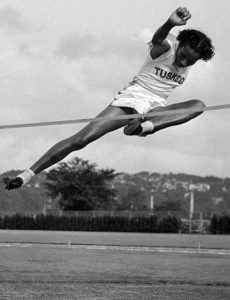
Alice Coachman, Wiki Commons
In the 1948 Summer Olympics, track and field athlete Alice Coachman became the first Black woman from any country to win a gold medal when she leapt to a record-breaking height of 5 ft, 6 and ⅛ inches. She went on to start the Alice Coachman Track and Field Foundation to support young athletes and retired Olympic veterans, according to biography.com.
Lorraine Hansberry
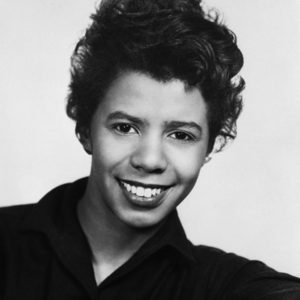
Lorraine Hansberry, Biography.com
Playwright Lorraine Hansberry wrote A Raisin in the Sun (1959), a play about a struggling Black family in Chicago. According to biography.com, the play ran for 530 performances and earned Hansberry a New York Critics’ Circle award, making her the first African American to receive that recognition. Today, A Raisin in the Sun is still considered an all-time American classic.
Katherine Dunham
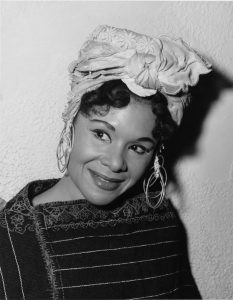
Katherine Dunham, Wiki Commons
Dancer, choreographer, and anthropologist Katherine Dunham revolutionized American dance by incorporating African ritualistic and ethnic movements. She joined the Federal Theatre Project in Chicago and choreographed a ballet, L’Ag’Ya, after doing anthropological fieldwork in the Caribbean and Brazil, according to britannica.com. She also choreographed for Broadway plays and opera using her signature African style.
Amelia Boynton Robinson
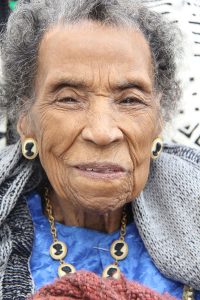
Amelia Boynton Robinson, Wiki Commons
Civil Rights Activist Amelia Boynton Robinson became the first Black woman to run for office in the Alabama legislature in 1964, according to biography.com. She was also the first female Democratic candidate for the position. During a peaceful protest, state troopers beat her and other activists, on what became known as Bloody Sunday. Despite this brutality, Robinson continued to promote racial equality, and in 1990, received the Martin Luther King Jr. Medal of Freedom in honor of her achievements.
Mamie Johnson
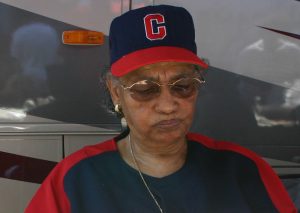
Mamie Johnson, Flickr
Nicknamed Peanut for her small stature, Mamie Johnson became the first woman to take the mound as a Major-League pitcher. She was banned from trying out for the All-American Girls Professional Baseball League because of her race, but that didn’t stop her from playing the game. According to a 2016 article written by Euell A. Nielsen for blackpast.org, Johnson played for three seasons with the Indianapolis Clowns in the 1950s and achieved a record of thirty-three wins and only eight losses.
Constance Baker Motley
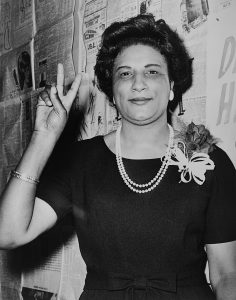
Constance B. Motley, Wiki Commons
While attending Columbia Law School, Constance Baker Motley worked for the NAACP’s legal staff – a choice that launched her critical role in the Civil Rights Movement. She led litigation against segregation laws and, according to a 2020 uscourts.gov article, she won nine out of 10 Supreme Court cases. Though some judges turned their backs to her as she spoke, she never caved to social bias. In 1966, she became the first Black woman to serve as a federal judge and spent her life protecting constitutional rights for minorities.
Lena Horne
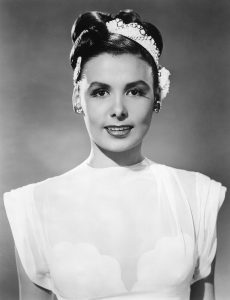
Lena Horne, Wiki Commons
One of the top African American performers of her time, Lena Horne started as a live singer then later worked in film. Her most well-known movies include Cabin in the Sky (1943) and The Wiz (1978). Thorne refused to play stereotypical roles for Black women and actively participated in the Civil Rights Movement, performing at rallies for the NAACP and the National Council for Negro Women, according to biography.com.
